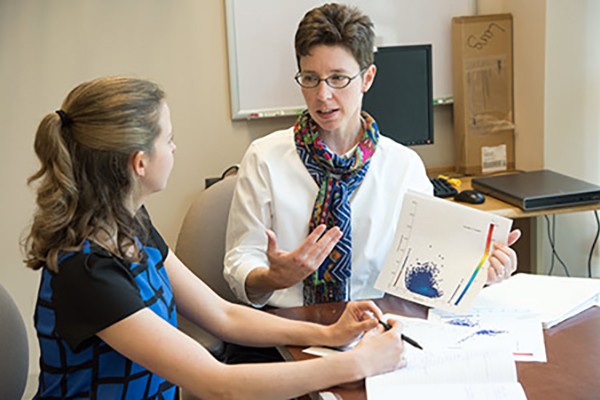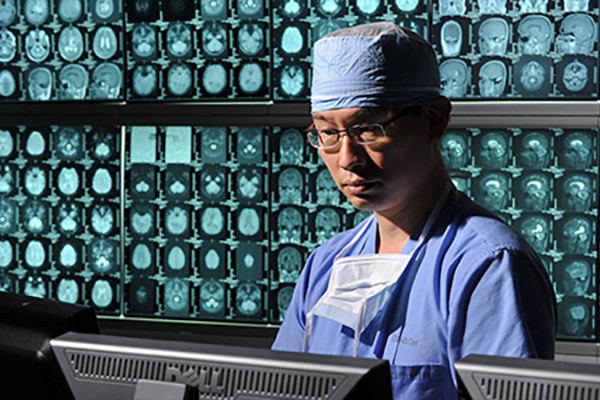Duncan entrance to SLCH garage to reopen June 22, Newstead entrance to close for 6 weeks
The St. Louis Children’s Hospital (SLCH) staff garage entrance and exit along Duncan Avenue is scheduled to reopen June 22, and the garage entrance and exit along Newstead Avenue is scheduled to close. The Newstead entrance will be reconfigured as part of a new road to provide additional access to the parking garages on Duncan and is expected to remain closed for six weeks. Newstead Avenue, however, will remain open.
Washington People: Catherine Lang
Catherine Lang’s love of movement drives her life and her work. As director of Washington University School of Medicine’s Neurorehabilitation Research Laboratory, she helps stroke survivors regain what their strokes took from them.
Eye’s motion detection sensors identified
Studying mice, scientists at Washington University School of Medicine in St. Louis have identified a neural circuit in the retina that carries signals enabling the eye to detect movement. The finding could help in efforts to build artificial retinas for people who have suffered vision loss.
New clues in mice link cholesterol to fertility
Whether made by the body or ingested through diet, cholesterol plays a vital role in cells. Cholesterol also is a building block of steroids and hormones, including those that trigger puberty and support pregnancy. A new study, led by Daniel Ory, MD, implicates a surprising regulator of cholesterol in cells’ ability to make these hormones, especially in tissues associated with fertility, such as the ovaries.
Scientists find way to disrupt brain tumor stem cells
Brain tumor stem cells can resist treatment and regrow tumors, but scientists have identified a vulnerability in these cells that could lead to a new approach in battling deadly brain tumors.
Traffic delays expected on eastbound Forest Park Avenue
Contractors are to begin pouring concrete June 11 on the metal decking of the new Barnes-Jewish Hospital tower. The work may lead to some intermittent delays for the next several months on eastbound Forest Park Avenue east of Kingshighway Boulevard.
Mecham, Geraghty honored by Marfan Foundation
School of Medicine faculty members Robert P. Mecham, PhD, and Patrick J. Geraghty, MD, were honored earlier this spring by the Marfan Foundation.
New chief of pediatric orthopaedic surgery named
Charles A. Goldfarb, MD, has been appointed chief of pediatric orthopaedic surgery at Washington University School of Medicine and St. Louis Children’s Hospital. A hand and wrist specialist, Goldfarb currently is a professor of orthopaedic surgery, co-chief of the department’s hand and wrist service and medical director of the Washington University and Barnes-Jewish Orthopedic Center in Chesterfield.
Medical students’ ‘First Year Funk’ video goes viral
For six consecutive nights, first-year medical student Travis CreveCoeur skipped sleep to direct and edit his class video, “First Year Funk,” a parody of Mark Ronson’s “Uptown Funk.” CreveCoeur thinks the sacrifice was worth it. The video has been viewed 134,000 times and counting.
Director of Center for Cellular Imaging named
James Fitzpatrick, PhD, joined the School of Medicine on June 1 as the inaugural scientific director of the Washington University Center for Cellular Imaging (WUCCI).
View More Stories


